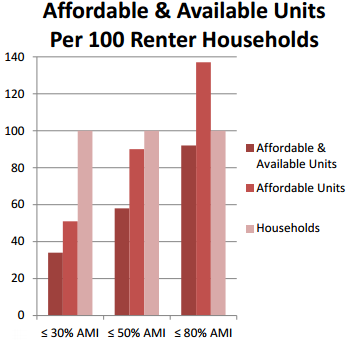A number of local neighborhood groups have banded together to push their agenda of preventing more housing. They are using the misleading name, Coalition for an Affordable and Livable Seattle (CALS). They intend to provide a petition to the mayor at the Seattle Neighborhood Summit and there is a very real risk that they will have a disproportionate voice when it comes to decisions made about housing in Seattle. Erica Barnett at PubliCola does a great job summarizing their petition.
The group is calling for six changes that all sound nice (and in fact some should be discussed) but are a dishonest attempt to prevent more housing. Some of the supporters in these groups are my neighbors and I sympathize with their concerns about changing neighborhoods. There is a serious discussion to be had about the future of Seattle and how to manage change. I would very much like these neighbors to participate in that discussion, but only if they are willing to engage the problems we are facing honestly.
Priorities and Values
CALS’ priorities and values do not match Seattle’s priorities and values. They believe there should be a moratorium on housing if their demands are not met:
Until they are adopted [their list of demands] we call on our newly elected Mayor and City Council to exercise their emergency powers and impose an immediate moratorium on further upzones.
This moratorium should also place a hold on issuance of residential permits (their emphasis)
Their call for a moratorium would only be in some neighborhoods, effectively making it impossible for anyone new to move there or for non-profit developers to build more affordable housing. This makes it clear that preventing “out of scale” development (one of their demands) is a higher priority than ensuring everyone has shelter and is welcome in every neighborhood. As we’ve stated previously, providing enough housing is often considered secondary to other concerns, including the aesthetics of neighborhoods. This reversal is extremely detrimental to important priorities, like lowering housing costs and ending homelessness. It should seem obvious to most people that affordable access to housing should be more important than aesthetics. If you agree, you might be asking, “how does a moratorium affect housing access?” This graph should help answer that question:

There are fewer available and affordable units for households making 80% or less than the area median income than the total number of households. In other words, there aren’t enough units.
But this graph doesn’t come even close to telling the whole story because it is just a snapshot. It completely ignores people who don’t live in Seattle because they can’t afford it. It also ignores the fact that people are moving to Seattle every single day.
One thing should be obvious; there is not enough housing. The only way to solve that problem is to build more. For anyone paying attention, it should be clear that a moratorium on building housing is not a serious proposal.
Engaging Our Neighbors
The individuals that make up these groups are our neighbors and we will need them to participate in the democratic process for our city to be successful. There are a lot of opportunities for them to do this but spreading false information and pushing the wrong priorities will not start a productive conversation with groups building affordable housing, renters depending on the private market and developers that are also concerned citizens. Instead of demanding that we stop providing more housing, CALS must propose how Seattle will provide affordable housing for the people moving here, in the neighborhood they want to live, without displacing those that already live there.
Additionally, CALS will need to be more honest. The group already has a bad reputation because of supporters comparing development to rape or the bombing of Dresden. Their petition furthers this perception because they represent a lot of information dishonestly. As an example, the petition makes a claim that there is plenty of capacity in the city, disregarding the actual costs and requirements of building housing. They also claim the city is pursing more upzones, which is flatly untrue. In fact the city is pursuing a number of changes that would result in reducing the number of housing units in Seattle.
We should reach out to our neighbors that sympathize with CALS. They need to know that the city of Seattle needs an honest and thoughtful discussion, emphasizing affordability; not a petition to prevent change at the cost of universal shelter and accessible neighborhoods.

Owen Pickford
Owen is a solutions engineer for a software company. He has an amateur interest in urban policy, focusing on housing. His primary mode is a bicycle but isn't ashamed of riding down the hill and taking the bus back up. Feel free to tweet at him: @pickovven.


